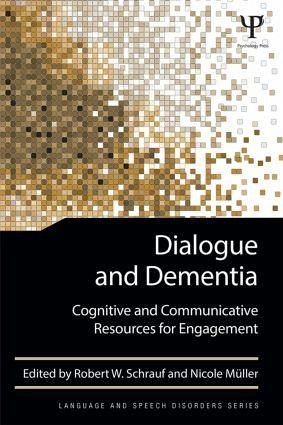
Dialogue and Dementia
Cognitive and Communicative Resources for Engagement
Herausgeber: Schrauf, Robert W.; Müller, Nicole

PAYBACK Punkte
42 °P sammeln!
This volume takes the positive view that conversation between persons with dementia and their interlocutors is a privileged site for ongoing cognitive engagement. The book aims to identify and describe specific linguistic devices or strategies at the level of turn-by-turn talk that promote and extend conversation, and to explore real-world engagements that reflect these strategies. Final reflections tie these linguistic strategies and practices to wider issues of the "self" and "agency" in persons with dementia. Thematically, the volume fosters an integrated perspective on communication and co...
This volume takes the positive view that conversation between persons with dementia and their interlocutors is a privileged site for ongoing cognitive engagement. The book aims to identify and describe specific linguistic devices or strategies at the level of turn-by-turn talk that promote and extend conversation, and to explore real-world engagements that reflect these strategies. Final reflections tie these linguistic strategies and practices to wider issues of the "self" and "agency" in persons with dementia. Thematically, the volume fosters an integrated perspective on communication and cognition in terms of which communicative resources are recognized as cognitive resources, and communicative interaction is treated as reflecting cognitive engagement. This reflects perspectives in cognitive anthropology and cognitive science that regard human cognitive activity as distributed and culturally rooted. This volume is intended for academic researchers and advanced students in applied linguistics, linguistic and medical anthropology, nursing, and social gerontology; and practice professionals in speech-language pathology and geropsychology.




